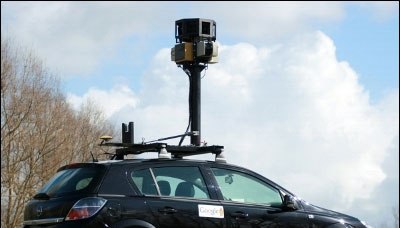

Google has reached an agreement with Connecticut state officials over the controversial Street View WiSpy incident.
Connecticut’s new Attorney General George Jepsen is leading the investigation into the matter and will negotiate a resolution to the data that the Street View cars collected from Connecticut citizens.
The state may request that Google make a multimillion-dollar payout as compensation for breaking state privacy laws. However, Google will not have to submit the data it collected to the state officials.
Jepsen in a statement left open the door for a future lawsuit versus Google if the parties “are unable to come to a satisfactory agreement through negotiation.”
Google admitted in May 2010 that its cars had accidentally grabbed 600GB worth of users’ emails, Web pages and passwords from over 30 countries over a three-year period. The Street View cars rove city streets to capture images for Google Maps.
Jepsen’s predecessor, Richard Blumenthal, requested Google disclose the data and an explanation about how it came to be collected last July.
Blumenthal’s interest in the matter ratcheted after Google, which initially claimed the data was fragmentary in nature, later admitted whole emails and other intact data were picked up by the cameras and antennas in the Street View cars.
Blumenthal reiterated his request that Google cough up the data it collected in Connecticut. Google refused, and Blumenthal and the Consumer Protection Commission issued a civil investigative demand, equivalent to a subpoena, 10 December.
Google refused to produce the data 17 December, but reached a compromise with Jepsen’s office six weeks later – after Blumenthal had ceded his post to Jepsen.
http://www.eweek.com/c/a/Search-Engines/Google-Denies-Connecticut-AG-Street-View-Data-395701/
As part of the deal, Google said it won’t contest the fact that its Street View cars had collected URLs of requested web pages, partial or complete e-mail communications, and other information.
While things are looking better for Google in Connecticut, the picture is cloudier at the macro government level. The Federal Communications Commission is still mulling whether Google broke federal privacy laws over the course of the so-called WiSpy incident.
Deliveries of Telsa's 'bulletproof' Cybertruck are reportedly on hold, amid user complaints side trims are…
New feature reportedly being developed by Apple for iOS 19, that will allow AirPods to…
Binance BNB token rises after WSJ report the Trump family is in talks to secure…
After failed Amazon deal, iRobot warns there is “substantial doubt about the Company's ability to…
Community Notes testing across Facebook, Instagram and Threads to begin next week in US, using…